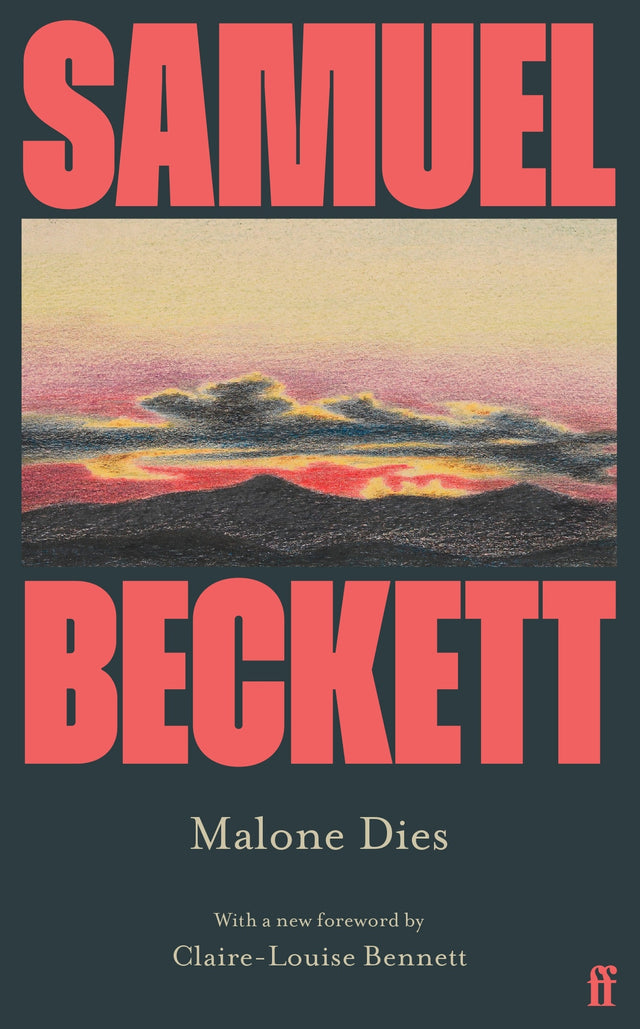Malone Dies

Ratings/reviews counts are updated frequently.
Check link for latest rating. ( 5,679 ratings, 573 reviews)Found a better price? Request a price match

Malone Dies
Malone Dies
The second of Samuel Beckett's three great novels, reissued for a new generation.
The second of Samuel Beckett's three great novels, reissued for a new generation.
The second of the three greatest novels by the era-defining Nobel laureate, reissued for a new generation.
Nothing is more real than nothing.
Malone, a decrepit old man, lies naked in his bed, scrawling bitter observations in an exercise book. He is fed on a bed-table, his chamber pot is emptied, he hooks items with his stick, he looks out of the window. He tells the story of a man, looked after by nurses, taken for an ill-fated picnic on an island in the sea. As his mind disintegrates, so does the novel...
Malone Dies is the second of the three great novels Samuel Beckett produced during his 'frenzy of writing' in the late 1940s. The others are Molloy and The Unnamable.
Book Details
INFORMATION
ISBN: 9780571386758
Publisher: Faber & Faber
Format: Paperback / softback
Date Published: 13 March 2025
Country: United Kingdom
Imprint: Faber & Faber
Edition: Main
Contributors:
- Introduction by Claire-Louise Bennett
Audience: General / adult
DIMENSIONS
Width: 111.0mm
Height: 178.0mm
Weight: 0g
Pages: 208
About the Author
Samuel Beckett was an Irish playwright, theatre director, novelist and poet. Born in Dublin in 1906, he studied French, Italian and English at Trinity College. He moved to Paris in 1928 - where he would spend much of his life, writing mostly in French - to teach English, and worked as a courier for the French resistance during World War II. His most famous play, Waiting for Godot, was first performed in 1953. He then wrote Endgame (1957), Krapp's Last Tape (1958) and Happy Days (1961). A modernist, associated with the 'Theatre of the Absurd', his work eschews conventional plotting or structure, exploring the human condition as bleakly humorous and profound, using laughter as a weapon against despair. Over his career, his work became increasingly experimental and minimalist, stripped down to the most essential elements: Play (1962) places its characters in funeral urns with only their heads visible, and Not I (1972) consists of a mouth speaking in the darkness. In the 1940s and 50s Beckett also published a number of acclaimed novels. He won the Nobel Prize for Literature in 1969. Beckett died in 1989 and is buried in Montparnasse Cemetery in Paris.
Also by Samuel Beckett
View allMore from General Fiction
View allWhy buy from us?
Book Hero is not a chain store or big box retailer. We're an independent 100% NZ-owned business on a mission to help more Kiwis rediscover a love of books and reading!

Service & Delivery
Our warehouse in Auckland holds over 80,000 books and puzzles in-stock so you're not waiting for your order to arrive from overseas.

Auckland Bookstore
We're primarily an online store, but for your convenience you can pick up your order for free from our bookstore, which is right next door to our warehouse in Hobsonville.

Our Gifting Service
Books make wonderful thoughtful gifts and we're here to help with gift-wrapping and cards. We can even send your gift directly to your loved one.






























